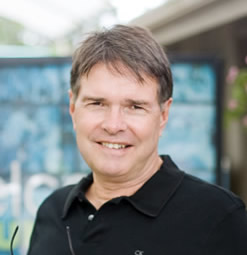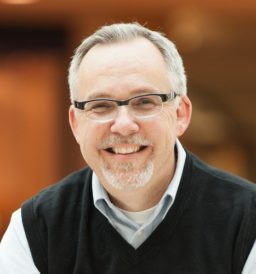To say that we are euphoric about the new conversation happening within church-planting circles would be an understatement. Exchanges that have progressed from “planting a church” to “planting a Kingdom movement” are key indicators that we may be heading toward a more hopeful future that sees a generation of young pastors who intentionally move from new church to Level five multiplication — from day one.
But before a new church planter can pursue Level 5 multiplication, a number of heart shifts must take place for authentic and catalytic movements of God:
1. A Shift in Heroes: From Me to Them
Movements require a change in our hero stories. Just as King Jesus, restful in His own identity and mission, could humbly announce that the upcoming power of His disciples would supersede His own (John 14:12), as modern movement makers we must emulate the humility of His example. As long as our personal insecurities lead us to occupy and dominate center stage, our overcompensating and fragile egos will never create enough space for genuine discipleship. Movements revel in new and unlikely heroes.
2. A Shift in Urgency: From Aid to Ownership
As long as starting and sustaining your church is your exclusive ambition, you will never understand, nor experience, the amazing power of the Kingdom of God. This kind of power seems to be exclusively reserved for a selfless spiritual community that is Heaven-bent on bringing good news to a desperate world.
In both our contexts as church-planting leaders, we continue to see that when God’s people draw a circle around their community and declare they will take spiritual responsibility for it, a gospel shift occurs. Suddenly, the church ceases to exist as a benign spiritual aid to a faceless geography and shifts to becoming the passionate owner of gospel responsibility for the eternal lives neighboring among them. Following in Paul’s footsteps, a church like this sees movement as it recognizes the race God has designed it to run (Acts 20:24).
I (Ralph) have been privileged to plant three churches. In the second church, we determined to grow the percentage of Christians in Hawaii’s population from four percent to five percent (a 20 percent gain in the overall church) in 10 years. It took 11 years, equating to about 10,000 people. Looking back, the key to this exponential growth was an announcement we made our first Sunday. We told the 72 people gathered on the beach for church that we weren’t there to build a successful church if success meant bodies in chairs. Our goal was to change a culture. We would look at the church through the lens of community change rather than looking at the community as a hunting ground for a bigger auditorium.
3. A Shift in Expectations: From Ingestion to Reproduction
Movements have always required an unswerving commitment to disciple making. Jesus’ “Plan A” of “Follow me, and I will make you become fishers of men” (Mark 1:17) has always been integral to the advance of His Church.
Looking back at the 20th century, we see the turn of events that have brought us to where we currently are. The year 1956 was a peak year for church attendance in the United States, followed by a downslide. During this time, the church passed the ball to para church organizations that evangelized the best and the brightest (think campus organizations targeting jocks and cheerleaders, or businessmen’s fellowships). Then came the fun merchants. I (Ralph) was one. Youth leaders in the church and para church ministries generated Halloween fun houses, goofy games and whatever else we thought would give kids more clean fun than the world could offer. But the enemy hit us back with drugs and free love.
The charismatic/Jesus movements helped regain some ground. But then came the ’80s and our attempt at competing against the world, always seeking better music, exciting liturgy and zippy sermons. In the ’90s, church campuses sprouted coffee bars for adults and video games for youth. We mounted a valiant effort to compete with Satan on his terms. The result of that effort is now a generation of people mildly interested in Jesus, but mostly turned off to the churches where they grew up.
It’s time for a different tack. A better idea than outgunning the world might be to out-produce it. This strategy gave the Allied Forces the victory in World War 2. They produced inferior guns, fragile tanks and hastily trained soldiers — but they produced far more of each than the Axis Powers.
Church planters who choose to attract a community rather than create community through disciple making are destined to go down these same roads, ultimately ending in a thankless ministry of arranging buffet options for their consumers’ fickle yet voracious appetites. However large and exuberant the feeding frenzy becomes, it is irrational to imagine that it will transform itself into a disciple-making movement.
4. A Shift in Opportunities: From Ours to Yours
As long as the term “missional” refers to a church’s corporate strategy of community engagement, movement is unlikely. Creating missional opportunities might be a great way to introduce the evangelistically wary to their assignment as disciples, but it doesn’t transfer to living out the gospel within the everyday context of life. The “as you go” part of Jesus’ Great Commission (Matthew 28:19) assumes that disciples will minister in the natural fields of their credibility and competence.
By shifting the primary disciple-making opportunity from “ours” to “yours,” new churches strategically position their people to make disciples out of the relationships with the strongest bridges of credibility. As a church planter consistently moves toward the shift of, “you can do it; we can help,” leaders of movements emerge.
5. A Shift of Celebration: From Numbers to Ratios
Planters that are truly taking spiritual ownership of their community will never be satisfied with planting a self-sustaining church of 250. Being the largest is insignificant to them. Instead, they’re burdened that only four in 100 are likely Christ followers and will multiply their outreach efforts to affect that ratio. To these planters, “therefore and make disciples of all nations,” (Matthew 28:19) means multiplying ministry and likely not receiving personal credit. Which leads us to the sixth shift.
6. A Shift of Motivation: From Now to Later
Perhaps what best distinguishes first-century from 21st-century ministry motivations can be found in ecclesiastical pragmatism. First-century leaders seemed largely unconcerned with quarter over quarter returns. Instead, with eternity in focus, they performed ministry motivated by their certain appearance before the judgment seat of Christ.
With eternity at front of mind, Paul describes his ministry: “do not account my life of any value nor as precious to myself, if only I may finish my course and the ministry that I received from the Lord Jesus, to testify to the gospel of the grace of God” (Acts 20:24, ESV). And with eternity imminent, Paul testifies, “the time of my departure has come. I have fought the good fight, I have finished the race, I have kept the faith. Henceforth there is laid up for me the crown of righteousness, which the Lord, the righteous judge, will award to me on that day” (1 Timothy 4:7-8, ESV). First-century movement leaders seem to have been highly motivated by a later judgment rather than the temporal and hollow accolades of men. These movements emanated from leaders who ensured that the multiplication of the gospel never, ever, became secondary.
7. A Shift of Kingdoms: From Mine to His
I (Jeff) often describe the Kingdom of God as, “what the world looks like when Jesus gets His way.” The first six shifts are really the practical living out of this seventh one. Movements emerge from the humility of leaders quietly pouring their lives into a lifetime of Kingdom advance. They arise from a soul conviction that joy and life can only be experienced through the exchange of kingdoms (John 15:11) — dying to mine, living for His. And in that exchange is all we need to prepare our spirit for His Kingdom movement: “Your kingdom come, your will be done, on earth as it is in heaven” (Matthew 6:10, ESV). If you’re a new church or a church daughtering a new church, make no mistake. You can plant a gospel movement. There will be obstacles (such as Christians who fight for the old paradigm that bigger and more glamorous equal success). You’ll struggle to make disciples fast enough, to multiply enough churches and to meet your goals. Meeting places will always be in short supply. But as we can attest, navigating these tensions is always worth the experience of seeing God’s hand move in unfathomable ways.
It all begins with a simple decision: Will we resolve to move toward Level 5 multiplication? Will we do it from day one?
Jeff Christopherson serves as vice president of the North American Mission Board for the Send Network. Ralph Moore’s Hope Chapel movement has birthed more than 2,000 churches worldwide, making him one of the few known Level 5 multipliers in the United States. Together, they have written a new book focusing on planting a level 5 church: New to Five. For a full list of the pathways and journeys to multiplication, download our FREE 2017 theme eBook Dream Big, Plan Smart by Todd Wilson and Will Mancini.








